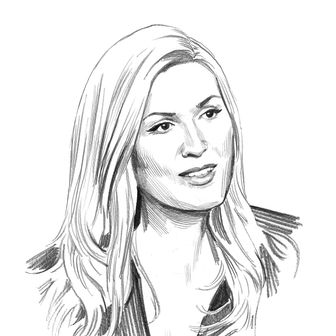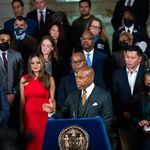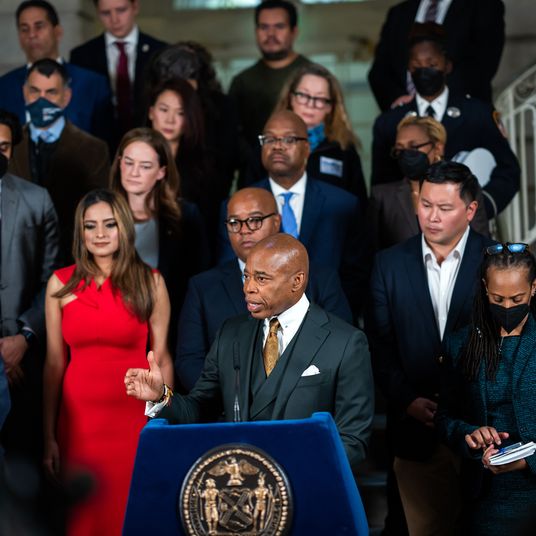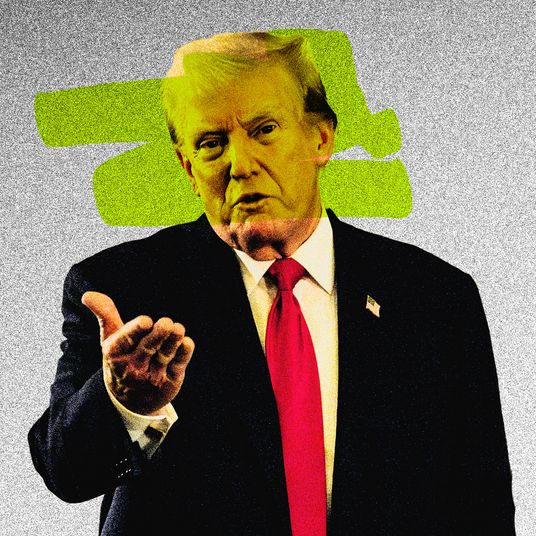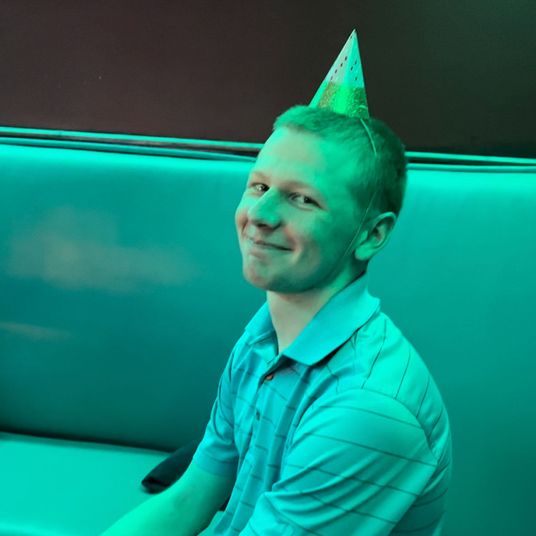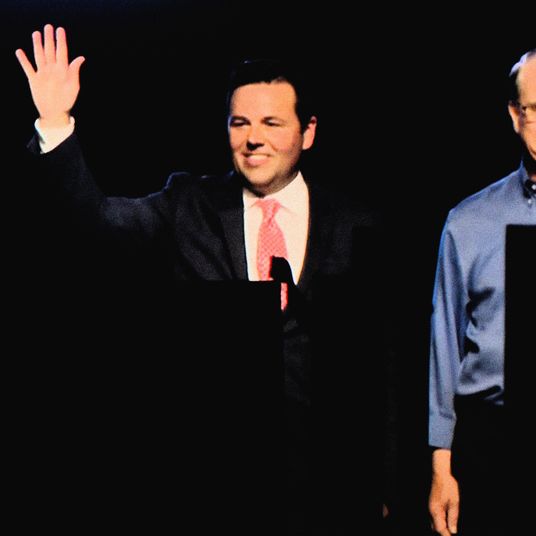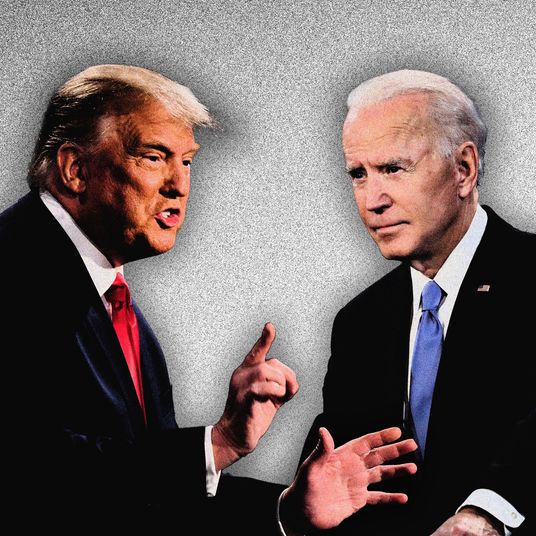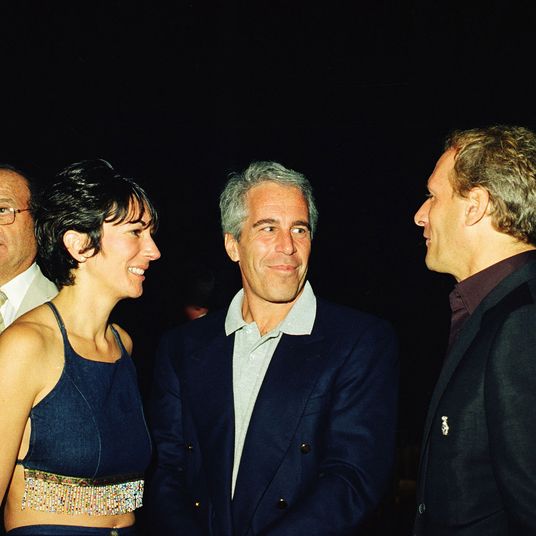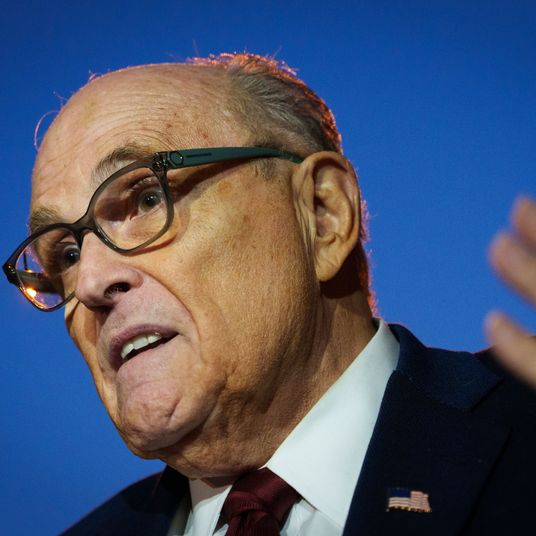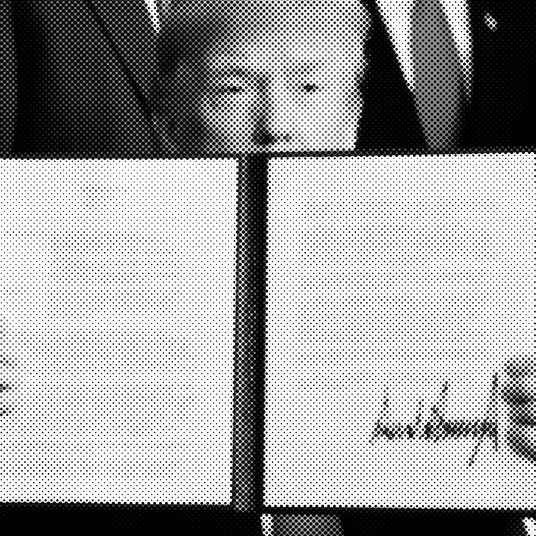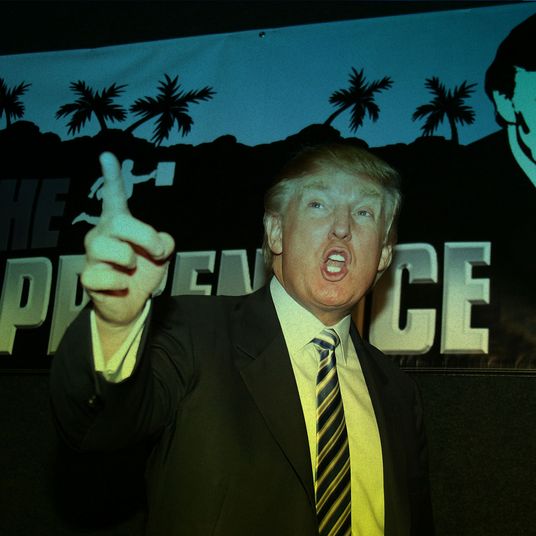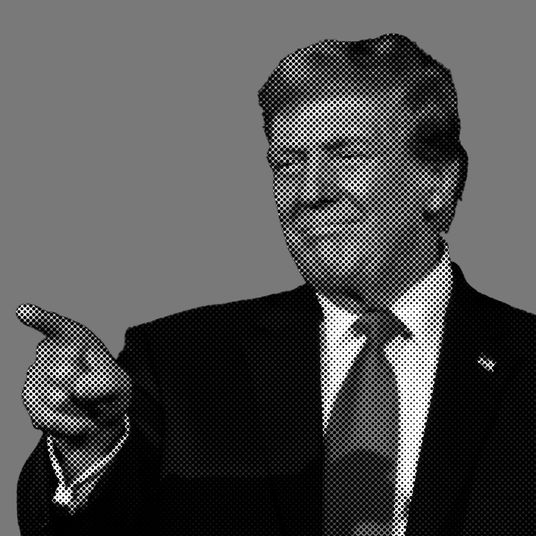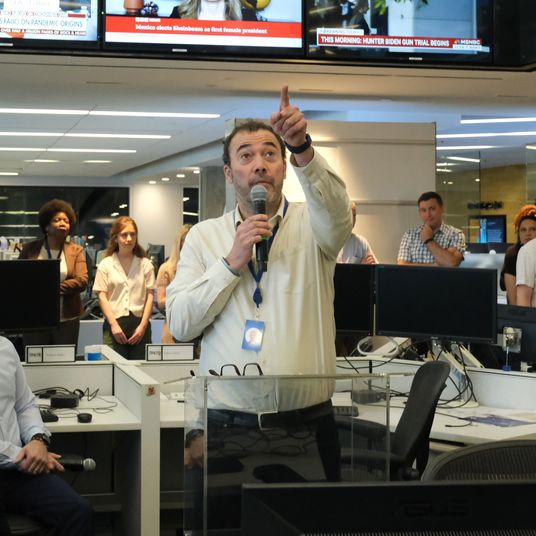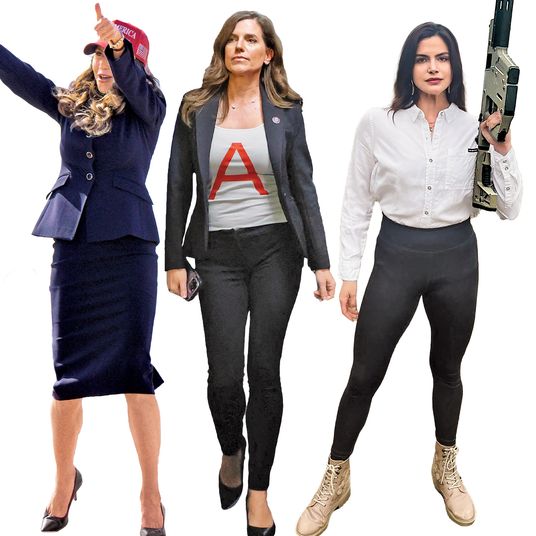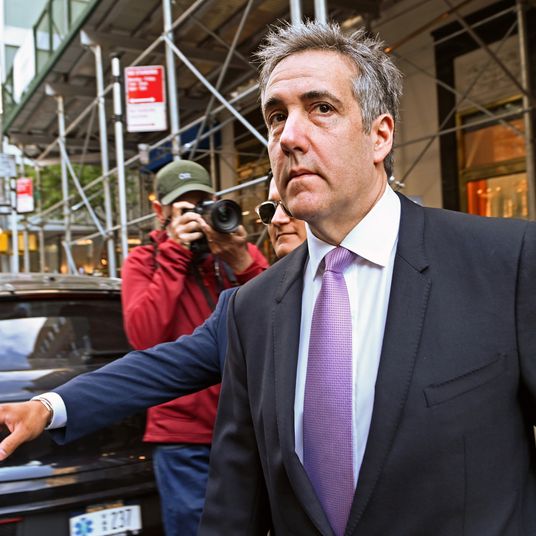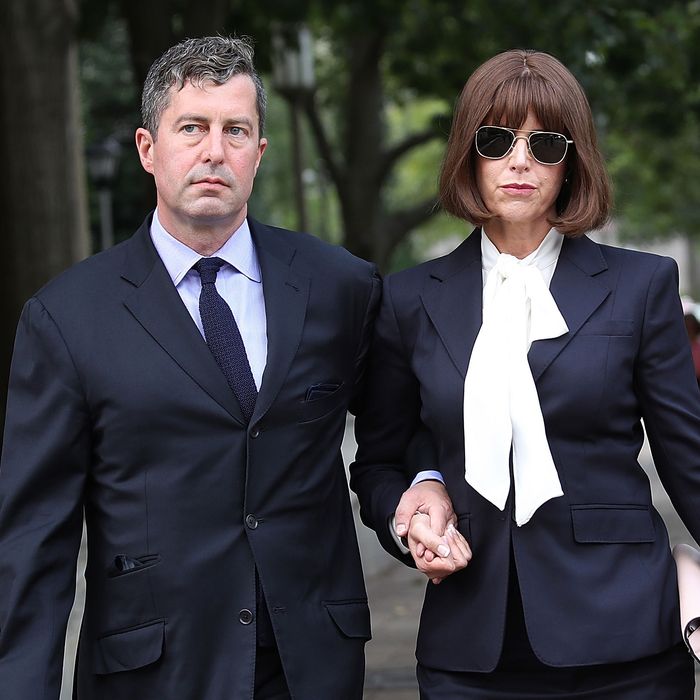
This story is being published in partnership with Epic Magazine.
I.
Late one morning just after Easter 2018, Sam Patten’s Siberian husky, Pepper, began to go “berserk.” Patten, a 48-year-old Republican political operative, could hear a commotion from the basement of his Capitol Hill townhouse, where he was working in the cluttered office that he calls “my little dungeon.” Pepper is sweet and easily subdued by any affection, so when her barking continued — loud, urgent, insistent — it was enough to draw Patten back upstairs.
By the time he made it to the living room, the FBI agents were already there, arguing with his wife. The intruders were no strangers to Laura Patten, who spent the last handful of years in a two-decade career in national security detailed to the agency. “When you’ve devoted the bulk of your adult life to protecting U.S. national security and interests, it is a very surreal experience to have the FBI show up at your house,” she told me.
“They were going back and forth about what they were here for,” Sam said. “And I came up holding my cell phone and they were like, ‘That!’ ”
The agents informed Sam that they’d be taking it. “And I said, ‘You’re not taking it until we call the lawyer,’ ” Laura remembered. But the agents produced a warrant, leaving the Pattens with few civil options.
Sam handed over the device and told the agents the password. They tried to engage him in conversation about its origin. He scrunched up his face as he recalled this — “What’s my thinking of coming up with my password?” — like they wanted the name of his elementary school and the last four digits of his Social Security number. He told them, “ ‘I’d prefer not to say,’ ” then he asked if they wanted some coffee. One of the agents responded, “I’d prefer not to say.” Sam rolled his eyes. To me, he said, “You know, he was being a dick.”
“And one guy was just being a dick,” Laura said, “and we asked — ” Sam cut in, “They removed him.” He had been “argumentative” with Laura, they agreed, especially when she asked about the nature of the investigation. “He got all pissed off,” Sam said. He called Laura “a contractor,” when in fact she was “a 17-year blue-badger.” That’s what made her mad. “I know that’s ego,” she admitted. “That’s not rational.”
Still, she appreciated the courtesies the agents did afford them. They’d arrived at 10 a.m., late enough, and they didn’t wear the nylon jackets printed with an FBI large enough to see from air-traffic control at Reagan National.
“There were people upstage, and it could have gone a very different way,” she said. “The landscapers,” he said, his voice an audible scare quote, as if he’d said “the lizard people.” The Pattens maintain moderate-to-severe levels of understandable paranoia, and in retrospect, they agreed, the alleged construction contractors and landscapers idling in the neighborhood that day might as well have been sitting in a truck that said FLOWERS BY IRENE.
“Just before the FBI came, I had seen these two beefy white guys with a Jeep Cherokee that sort of cock-blocked my car in. They were standing out there looking,” Sam said. “There was something weird about it. So I went out like, ‘Who are you!’ It just didn’t add up.”
In part, that was because he really didn’t think of himself as the kind of person who would end up center stage for literally the world’s biggest and most obsessively monitored political scandal — though given its arms in espionage and business and tech and law enforcement and real estate, it didn’t exactly seem adequate to call “the Russia story” just a political scandal. In a certain way, Patten was a weird fit next to people like Paul Manafort and Steve Bannon and Michael Cohen, swaggering cartoons of self-promoting influence so ridiculous you almost can’t believe they’re real. He was sort of ridiculous, too, not that he could see that, a shady bit player and professional Zelig who kept popping up at the wrong place and the wrong time. And, like Manafort and Bannon and Cohen, he was going to spend the next few months living on the other side of the Mueller-report bell jar. That is, inside it.
On his best days, his least-bitter days, he talked about how he hoped his cooperation might help the country, even as he feared it was all for nothing, was — to borrow the words of the president — a “witch hunt.” He told me once, “If my life’s gonna be destroyed, I’d rather have some role bringing down a piece-of-shit president. I mean, if this process does part of what it’s supposed to do, then it would almost make the course worthwhile. I won’t even say worthwhile but easier to take. I mean, our country is suffering. If you’re not suffering and the country is suffering, you’re not very patriotic, are you?”
Patten had worked in politics consistently since his 20s, when he got a job with Susan Collins, the U.S. senator from his home state of Maine, but most of his work had been on the fringes, overseas. He became part of a new generation of American lobbyists and consultants for hire, decamping to the Wild West of other nations to impart the good word of democracy and, crucially, make out like bandits.
But even when the work was dangerous, when he was in the path of bombs or mobsters or mobster-oligarchs or whatever else, it had never earned him much notoriety. He’d certainly never been the kind of figure who anyone suspected knew anything about any great domestic political scandal. And he’d never made enough money that acquaintances became suspicious.
Patten would be the first to tell you he’d fucked up his fair share, but these fuck-ups were not of the variety ordinarily pertinent to federal investigators. When he’d been in trouble, it was usually owed to some combination of alcohol and his mouth. He is a natural storyteller with a journalist’s eye for detail. But he is also judgmental and cutting. Even sober, he talked himself off a cliff. He once chased after me to explain himself after saying some offensive thing or another during an interview. “Just so you know, when I say ‘retarded,’ I don’t mean ‘mentally retarded.’ I mean people who are stupid by choice,” he told me, “And when I say ‘fag’ or ‘fairy,’ I don’t mean gay. I mean people with male anatomy who are not men.” But often alcohol alone was enough to do damage, like the time he blacked out with hookers and woke up with his phone and wallet and wits completely MIA. Trouble he was familiar with, but what was happening in his living room — the agents scrolling through his contacts, stopping at the name Steve Bannon — felt like something very different altogether. First of all, there weren’t any hookers.
As they were leaving, one of them handed Patten something. It was a subpoena.
II.
Looking back, the moment Patten knew he was fucked came earlier—when the men in suits came looking for him the first time. “I started to get a real bad sense then,” he told me.
It was late in the winter of 2018 and Patten had returned to Washington, D.C., after a week in Florida with his wife and in-laws. While he was away, his 19-year-old son said there had been an odd incident at home: Two men knocked on the door and asked to speak with his father. They didn’t say why, and they didn’t introduce themselves. They looked like they probably worked for the government. When he told them his father wasn’t there but that he might be back later, they said they’d be back, too.
They didn’t say when. Then they took off.
Patten’s mind raced — first to Mexico, the location of his most recent assignment for Cambridge Analytica, the political consulting firm founded in 2014 by Steve Bannon and Robert Mercer, which had, in the 2016 presidential election, worked to elect Donald Trump. Patten was aware of reports that the firm had utilized its microtargeting capabilities to help the spread of Russian propaganda, and he’d seen the news that it had emerged as a subject of interest to congressional investigators as part of the inquiry into foreign election interference.
“There were all these different threads,” Patten said. “I was sort of thinking, at that point, How does this look? That was what I was worried about. I was pretty sure all along that the Russia thing was bullshit … The whole thing was being artificially puffed up. So, in that context, I was self-aware enough to be nervous about where I was. Things were just falling apart right and left, and I was like, What’s gonna blow up next? And cue the government. All went according to plan.”
He’d been associated with Cambridge Analytica ever since he met its CEO, Alexander Nix, at Off the Record, the basement bar at the Hay-Adams hotel, in 2014. Cambridge brought him to Oregon, where he worked on behalf of a senatorial candidate accused of stalking; to Mexico, where the whole thing “imploded,” Patten says, and nobody got paid; and to Nigeria, where he worked in a presidential election on behalf of the incumbent, Goodluck Jonathan, and where a whistle-blower would later allege that Cambridge Analytica was responsible for a violent, Islamophobic video that targeted the candidate’s Muslim opponent (though not effectively enough, since Muhammadu Buhari won anyway). He didn’t seem to know much about, or have involvement in, the firm’s data-targeting practices. The work he performed was more standard: analysis, speechwriting, ads, attempts to sway the media. Domestic work was a bore, as he saw it. It was basic. The reason Patten admired Manafort, and those of his ilk, was because Manafort wasn’t just parachuting into a place and behaving as if whatever advice he could offer the local players was gospel because of who he was; he became a part of the places where he worked. Patten aspired to be like that, too.
“Most of the time, he’s got good ideas. Occasionally, he’ll have really left-field ideas,” Perry Willoughby-Brown, a political operative who worked with Patten at Cambridge Analytica, told me. “He had an idea that we should try to start a rumor. In Nigeria, there are a lot of behind-the-scenes people who direct politics. And Sam said we should start a rumor that one guy demanded the other guy shine his shoes and they got into a fight. And then the other guy did eventually shine his shoes and left in a huff about it. He wrote a blog about it, and he tried to push that a bit on social media.” In the end, Willoughby-Brown said, “it never really went anywhere.”
But it wasn’t just Cambridge Analytica. There was also Ukraine. Patten had first traveled there to aide the pro-Western president Viktor Yushchenko in the 2007 Verkhovna Rada elections. An old friend he’d met once in Moscow, Konstantin Kilimnik, was working there, too — for the opposition, Viktor Yanukovych — with an American lobbyist named Paul Manafort, whose reputation preceded him. Among the consultant class, Manafort was by then the stuff of legend, though Patten said he’d never encountered the guy.
He and Kilimnik didn’t interact much during the race, Patten said. They met once in Kiev to catch up over lunch. Harmless activity, by the standards of U.S. campaign operatives, whose militant loyalties are more often to opportunity than ideology. But politics was more gangland than green room in Ukraine, and the friends had been tailed by state intelligence services, who narked on Patten to his boss. He was banned from further contact with the competition.
Seven years later, at Kilimnik’s invitation, Patten came back to Kiev to play for the other team, or what remained of it. Manafort had been hired by Serhiy Lovochkin — a former top aide to Yanukovych, who by then had fled to exile in Russia — ahead of the parliamentary elections. Although Patten did share an office with Manafort and his deputy, Rick Gates, he said he wasn’t reporting to Manafort and he wasn’t paid by him. Not technically. Patten and Kilimnik had formed a company, in which they were equal partners, to perform their work; over two years, they brought in more than $1 million through an offshore Cypriot account. After the election, Patten joined Manafort and Gates for dinner. He remembered what Manafort said to him then, like a mobster talking to his errand boy: “You earned your money, kid.”
Now, everybody who’d set foot in the Kiev Hyatt seemed of interest to investigators — not just Manafort with his despotic clients and ostrich-leather jacket, though Manafort was certainly a special focus for the special counsel.
And then there was Steve Bannon, whom Patten said he met for the first time during the 2016 campaign, before Bannon officially joined Trump’s operation, when he was still at Cambridge Analytica and Breitbart News. At the time, Patten was lobbying for the Committee to Destroy ISIS, and he met Bannon at the Breitbart headquarters, nicknamed “the Embassy,” near the Supreme Court. Bannon supported the agenda of the group and invited Patten on his radio show and onto Breitbart’s opinion page, which Patten now calls an “unfortunate” résumé item. “It’s something I’d prefer to go away and not be high on the SEO,” he told me. He continued to talk to Bannon through his time in the White House, when Bannon served as chief strategist to the president, even meeting him, Erik Prince, and Sebastian Gorka in the Executive Office Building to discuss Iraq when Bannon’s office was moved there during West Wing construction.
More recently, Patten had met with Bannon about Bannon’s new projects, which mostly involved exporting his far-right worldview. “He asked me if I would be interested in helping him with the European thing,” Patten said. “I’m a little bit embarrassed, but I thought about it. It’s the professional vanity thing. Steve Bannon — I think there are aspects and associations that he has that are suspect, but I find him an interesting guy, and to have him ask you to run his foreign project is a compliment, and I didn’t have other offers, so I needed to make money and I was thinking about it.” Laura, who says she’s a liberal, thought the idea was terrible. “I have learned that a successful partnership is sometimes just to say, ‘Oh.’ And then let the person make a decision,” she told me. But as Patten worked out the pros and cons in his head, Laura said her own internal monologue went something like, “No way in hell is that gonna happen.” (Reached for comment, Bannon’s spokeswoman said, “Mr. Bannon has met Sam Patten in passing and has no business or personal relationship with him.”)
Patten and Bannon were scheduled to have dinner at the Breitbart Embassy a few days after the FBI raided his house. And now that he was thinking about it, none of this looked very good, probably, from the outside. In fact, it seemed odd even to him that so much of his life, so many of his associations, appeared suddenly relevant to the very thing the whole country seemed to care about, seemed paranoid about. Or was that paranoid? If he tried to look at it as if he were someone else, he could see these previously innocuous details as pieces of evidence, piling up and crowding around him like the books in his little dungeon — but what did it prove? He was pretty sure he hadn’t done anything that was technically illegal. But eventually he pleaded to failing to register as a foreign agent and started to talk.
III.
One of the worst things about Washington is that you are always bumping into people. You walk down a busy street and you see at least one member of Congress, three reporters, Newt Gingrich, 11 Democratic presidential candidates, and five sources with knowledge of the situation. You just can’t go outside there.
Patten understood the ways of the Swamp better than most. He was, after all, William Samuel Patten Jr., born at Georgetown University Hospital on July 22, 1971, to William Samuel and Katherine Patten, second cousins (regrettably) and descendants of John Jay (proudly). He was raised partly in Maine, yes, but also in the Georgetown home of his grandmother, Susan Mary Alsop, “the grande dame of Washington society,” according to the Washington Post.
“She would use me as an extra man for dinner parties,” Patten said. “There’d be a Supreme Court justice, an ambassador, a writer, maybe Mrs. [Katharine] Graham — a combination of the Georgetown set and always people to be on your best behavior for. It was not okay to not be interesting. That was the worst thing in the world.”
But even knowing how elite Washington “works” and how claustrophobic it can be, he was unprepared for a sudden political drama at his regularly scheduled meetings with the Lord. For five years, Sundays at home had been the same. Sam and Laura would cut through town to St. John’s, the buttercup-colored 19th-century Episcopal church across the street from Lafayette Square, a few yards from the White House, for the early service. Historically, the place has been a who’s who of who’s holy. It’s welcomed in its designated President’s Pew (No. 54) every chief executive since James Madison.
The Pattens would dress for the occasion like characters straight out of Clue. When I attended services with the couple, Laura wore a white pencil dress and white fur hat that made her look like a human dandelion or a spy in a spy novel written by Dr. Seuss, while Patten, always rumpled, wore khaki and tweed — as if he might escape via sailboat or library trapdoor at any moment.
It hadn’t been a problem, previously, that Robert Mueller and his wife, Ann, attended the same service. Sam didn’t know him, though occasionally, he said, they’d exchange brief hellos or at least nod at one another in passing. Laura figured he knew who she was, had perhaps seen her at FBI headquarters, though they had no relationship. It was just an oddity of life in Washington — an interesting little factoid about what a person with real power does in real life to pepper into conversation at a party, helping everyone feel just a bit more connected.
But then there was the subpoena. “There were looks back and forth,” Patten said. And after that, the felony charge of failing to register under the Foreign Agents Registration Act on August 31. The Pattens decided to begin attending a different service. In an email to the Reverend D. Andrew Olivo on September 4, Patten wrote, “I gather you caught Friday’s news. Frankly I’m still catching my breath. On Sunday we made a point of going to the earlier service for optics, etc.” The Reverend Olivo wrote back, “You’ve been in my prayers.”
IV.
On the mornings of interviews with the special counsel, Patten would make his way to his lawyer’s office, located across the street from the Trump International Hotel on Pennsylvania Avenue. His lawyer would brief him, give him a pep talk. Then “some FBI agent, usually friendly, would drive us to the special counsel’s office,” Patten said. “When I sat in the back seat, once I sat, the doors locked, and the agent looked at me. That sucked … I’ve been in a lot of dicey situations in my life, so you’ve just got to roll with it. But yes, I was scared.”
“What they do is they go around the block and they speed up and open the garage door where the trash comes in, and they take a hard turn because there were cameras there. Sometimes, they’d suggest you duck down. Sometimes, they would have the glass that was filtered, shaded.”
Patten said they parked among the dumpsters — he called it the trash bay. “There’s a guy who’s waiting there, who opens the door and closes it,” he said. “The guy with the door, and he always had a backpack. I asked him, ‘What’s in the backpack?’ ”
He went on, “The backpack man looked a little bit like a vampire. I got the sense some of those guys didn’t get a lot of sleep.” From the garage, the elevator would take him to the fourth or fifth floor. “The rooms where I had my interviews or debriefs were windowless, but whenever we took a break or I was to use my phone, you have to go stand by the window because their cell coverage was shit,” he said. In the windowless room with him was his lawyer, the note-taker, and “lawyers from the special counsel and FBI lawyers and agents.” They sat before a “small conference table. Light walls. Prison chairs,” he said, though they did sometimes offer “Office Depot” chairs with a cushion. “They don’t offer you water. However, in the break room, there’s a vending machine, so my lawyer would buy in the break room. The U.S. Attorney does offer me water, so it’s an improvement,” Patten said. “My lawyer would go out to a food truck or something and bring me back something. There was an opportunity to eat. It wasn’t like a Ukrainian oligarch who feeds you caviar.”
His “interrogations,” as he called them, lasted a full day — six to eight hours — and were conducted mainly by Andrew Weissmann, Mueller’s No. 2. “I think we liked each other,” Patten said. “I liked him more than I intended to. They call him the pit bull. During the Enron investigation, he was said to have led a trail of human carnage.”
Weissmann “destroyed a lot of people for no reason” in that investigation, Patten said, but the look on his face suggested that he admired the guy. “I like smart people,” he continued. “He was surprisingly gentle with me. I thought he would thrash me around more than he did. But he didn’t — they had me by the balls, so I guess he didn’t have to.
“I ended up with a positive view of them. As you know, I’m not delighted with their decision to pursue a felony. I don’t think it was necessary or commensurate with past enforcement factors of that statute, but I got the sense that he was trying to get the full picture.”
“I think in his mind, my value to him was I was going to be a ribbon on this case against Paul. That I was somebody who actually understood the universe of Ukrainian politics.”
“They had all of my emails in binders,” he said. “They had binders of my emails with tabs. They’d say, ‘Okay, now we’re on tab one. Now, we’re on tab two,’ and they’d go through it. They’d say ‘We’d like to talk about this’ or ‘We’d like to talk about that.’ ” Patten said he wasn’t particularly bothered by the exposure. “Privacy is a quaint European notion,” he said. “I have given up the presumption of privacy. Every time I open my phone, still now, and I go to my email, I get a long list of ‘no sender, no sender, no sender.’ What that means is somebody’s in my phone. Is it the Bureau? Is it the Russians? Is it the Iranians?” He added that he is “no tech expert,” but, he said, “I’ve lived and worked in enough authoritarian countries that it doesn’t freak me out as much as it might freak others out. If I wrote something, I meant it. In other words, I stand by it. I’m not generally a lawbreaking motherfucker, right. I’m more or less an honest person.”
Senate investigators, he said, implied they were offended by some of the language in his communications. “Was there some bawdy language in some of the email? Yeah, sure. There’s some bawdy language. Some non–politically correct language in places. If somebody is going to go sifting through my emails, they’re going to have to deal with that. I’m not going to be held to politically correct standards of speech,” he said. He told me that he referred to former Hillary Clinton campaign manager Robby Mook as “nothing but a little faggot.” Then, quickly, he corrected himself. “No, I didn’t use that word. Sorry. I called him ‘a little gay man.’ ”
When I asked why he misremembered himself using a gay slur, he became defensive. “Because I get worked up. I get worked up at this situation, and I get worked up at how this situation — I did not call him that, okay?” He went on, “I called him a little gay man, which is descriptive. He is little and he is gay. True! When you compare him with Paul Manafort, master of the universe, and this nothing waterboy for Hillary, they’re not comparable.”
Observing the look on my face, Patten grew more defensive. He pulled out his laptop and asked me if he could explain himself. “I’m not a bigot when it comes to gays. I regret the word that I used in sort of a fit of pique. Here’s my friend Harris on holiday, so — ” He showed me a photo of a man on a beach in a small swimsuit. I expressed confusion. “No, I’m not in this photo,” Patten said, “but you get the gist.” I expressed more confusion. “I’m supporting my assertion that I’m not a bigot,” Patten said. “I know it’s cliché.”
Unlike the Senate, Patten said he never got the impression that the special counsel’s investigators cared about the language he used in his private communications. Instead, they wanted him to be a sort of fixer for them — guiding them through the underworld of quasi–criminal lobbying and power-brokering and money-laundering where the big fish of the special counsel’s investigation operated. Even Mueller couldn’t understand that racket. At least not without some help.
In the special counsel’s Report on the Investigation Into Russian Interference in the 2016 Presidential Election, Mueller cites Patten as a primary source for information and context about Kilimnik and as a resource against whom to check the accounts of other, less-reliable narrators. On page 139, for instance, Mueller attempts to piece together a meeting between Manafort and Kilimnik that took place in New York in the summer of 2016. In their communications, Kilimnik references “the guy who gave you your biggest black caviar jar,” which Manafort later explained was code for Yanukovych — who, in 2010, had gifted Manafort a literal jar of black caviar worth between $30,000 to $40,000 at a lunch to celebrate the outcome of the Ukrainian presidential election. Elsewhere in the report, an email from Kilimnik to Patten is redacted. In block letters, the explanation reads, HARM TO ONGOING MATTER.
V.
Were you planning a stay at one of our nation’s penitentiaries, the D.C. jail would probably not be your first choice. A charmless hunk of rust-colored concrete on the southeastern edge of Capitol Hill, inmates there are subjected to conditions that should amount to a violation of the Eighth Amendment. A 2019 report from the city auditor described a state of decay in a facility vexed by underfunding and overcrowding throughout its grim history: water leaking through the roof, mold growing on the walls, meals prepared without regard for sanitation, pests roaming uncontrolled, and temperatures fixed “outside of allowable standards.”
Patten looked up at the building. “This is where you wanted to go?” I asked. “Well, ‘wanted’ — ” he said, laughing slightly. “This is where I’ve indicated my preference.”
It was the early afternoon of April 19, the day after the release of the Mueller report, and most of Washington, with its vast hunger for all things Russiagate, was still processing the 448-page document. Patten wasn’t taking part. He could barely bring himself to scan the pages that mentioned him by name, the pages that could explain what had happened to his life since the FBI first knocked. “I avoided it because I felt like I did my time on this shit,” Patten told me. “They took over my life.
“What do you call it when you have two completely different interpretations of the same thing?” he said. “My Russian friend, his advice to me was to practice cognitive dissonance. That’s so Russian. That’s how when your country has been a totalitarian dictatorship for most of your life and the government speaks lies. Russians, former Soviets, do this as a manner of survival. It’s how they deal with the fucked-up reality of falsehood as official truth,” he said. “Just try and pretend that it’s not you, it’s not happening to you. That’s the way in which you get through this.”
We were walking through the Congressional Cemetery, where the cherry blossoms were nearing the end of their bloom and the ground was dusted with petals crushed into the mud like flowery slush. Pepper stopped to sniff another husky. “They look like they’re cousins, huh?” Patten asked the woman walking it. “Maybe they’re related from back in Siberia.” The woman smiled politely. “Probably,” she said. Pepper darted off through the maze of headstones.
It was only a week earlier that he’d been sentenced — no jail time, just some community service and a few years’ probation. But in the months leading up to that day, terrified of another outcome, Patten became delusional. He convinced himself that if he was going to the pen, he’d do it his way. It’s only human, after all, to grasp for something — anything — to control when your world falls apart. And Patten grasped at everything he could. “I don’t want to go to Club Fed,” he told me once during that period. Instead, he wanted to go to the D.C. jail. “Put me in real prison,” he said. “ If we’re going to do it, let’s do it.”
“My wife would kill me for saying this, but I think I’m black,” he said, “I trust black people more than white people, particularly after this experience. I don’t know why.” He went on, “Obviously, I’m not black. I prefer blacks to whites. I just do. I trust them more. I feel more comfortable around them. It’s weird. It is weird … I think my parents were very young when I was born. End of the ’60s, early ’70s, doing their thing, drinking a lot, so forth and so on. I could always trust the black servants to feed me and put me to bed. It’s intuitive. I trust black people more. I don’t know why. I feel more comfortable around them even though I’m not. I choose black AA meetings. I prefer them to white AA meetings. I prefer black problems to white problems. I just think they’re more real. It’s weird. It is weird. Don’t make a lot of this in your article because it does come off sort of strange. I just would feel more at home at D.C. jail than at Club Fed.”
In the grip of this racist fantasy, he obsessed over how to succeed inside the jail he would never go to, as if it were a matter of will. If he was going there at all, he figured, it wouldn’t be for long. Maybe a couple of months. He didn’t know what to expect of anything anymore — clearly — but that’s what his lawyer had told him. To be safe, he prepared mentally and physically. He lost 40 pounds. He got sober. More sober than he’d ever been. He even called the jail to request access to an AA meeting in advance of potential incarceration. Just to get a feel for what it would be like. (The idea was rejected). Still, there was a certain power in being on top of shit enough to ask, or to even think to ask. At Tony’s Boxing Gym, a fitness center in a location Patten refers to as “the hood,” he wrapped his knuckles in tape and trained to fight. He became the kind of person who flexed in front of a mirrors and snapped shirtless selfies. He posted one on Instagram.
It wasn’t all for nothing. He felt better now. His self-esteem had improved measurably. And Laura couldn’t stop talking about how hot she thought he was. But it still ate at him, what he considered to be the unfairness of this season of his life — the world recoiling in some mix of disgust and horror at the work he had always viewed as just the extremely lucrative business of international politics.
If pressed, he could eventually summon some regret. When he first began his international career, he said, “I bought into this narrative of good guys and bad guys.” But over time, the world became less and less clear. “Picking up Paul Manafort’s client is a move towards a dark direction,” he said, though at the time it didn’t seem that way. In Iraq, his ex-girlfriend accused him of working for the side with “blood on their hands,” but Patten wouldn’t see it that way. “Maybe they were fighting us because we were invading their fucking country, you know?” he said.
“I don’t think, where I am today, that I crossed lines totally into darkness, but I came close. I came close enough to scare myself,” he said. We were having tea by the window in Blue Duck Tavern in Washington’s West End neighborhood. Patten is a big tea drinker who transports his own leaves and equipment with him to restaurants. Sometimes, he stirs berry jam into the beverage instead of honey. It was in this establishment, he said, that he’d scared himself. He was concerned about getting into specifics, but he tried to explain anyway.
“I’ve come into the company of people who produce arms, and I’ll just say, in this restaurant, I did have a meeting with a major well-known mercenary and another character about setting up selling fighter jets to a country threatened by Russia,” he said. “And I’m thinking that’s kind of a far way to go from exporting democracy, you know?”
For now, Patten is performing his community service and abiding by the terms of his 36 months of parole. When we met earlier this summer, he was considering a run for Senate in Maine against his old boss, Susan Collins, although he has since ruled this out.
As for whether he expects the president to pardon him, he’s uncertain. He is, at the end of the day, still an optimist, but he’s also, as you’ve seen, frequently wrong.
“I think there’s a chance,” he said. “Do I bank on that chance? No. I am resigned to be a felon for the rest of my life.”
*A version of this article appears in the August 19, 2019, issue of New York Magazine. Subscribe Now!


